Find Help
More Items From Ergsy search
-
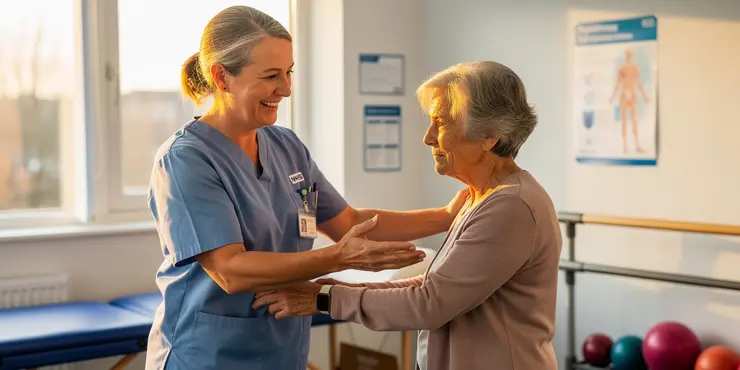
Falls and Falls Prevention
Relevance: 100%
-
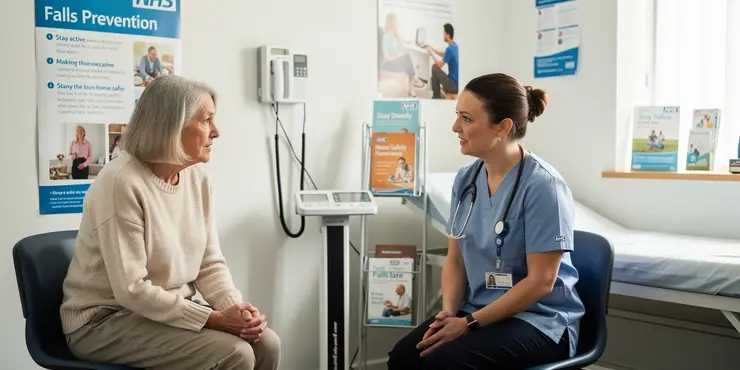
Falls Prevention Podcast
Relevance: 90%
-
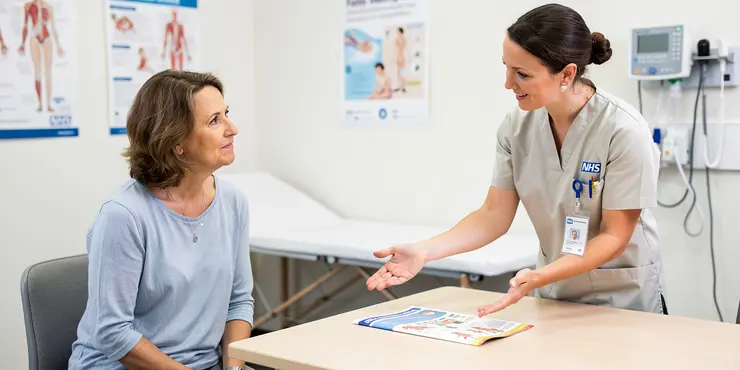
Falls Prevention video for patients attending hospital
Relevance: 77%
-
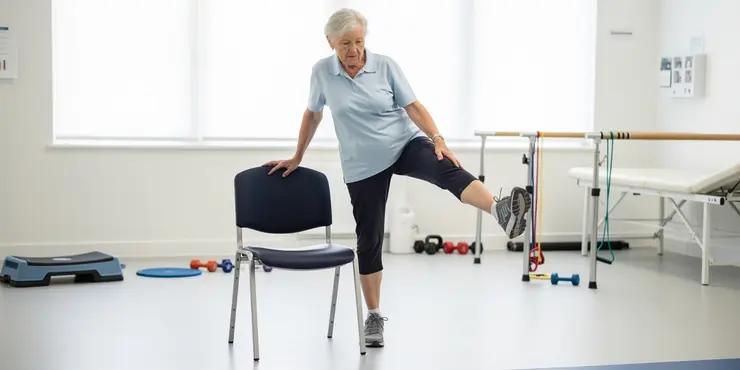
Falls Prevention - strength and balance exercises
Relevance: 77%
-
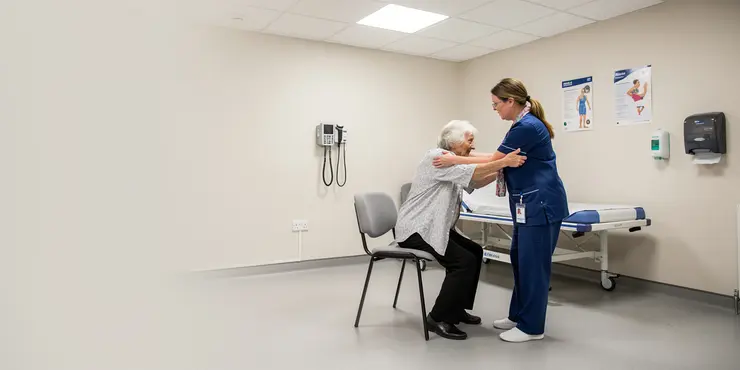
Fallsafe - Put the patient first. Preventing falls in Hospital.
Relevance: 75%
-
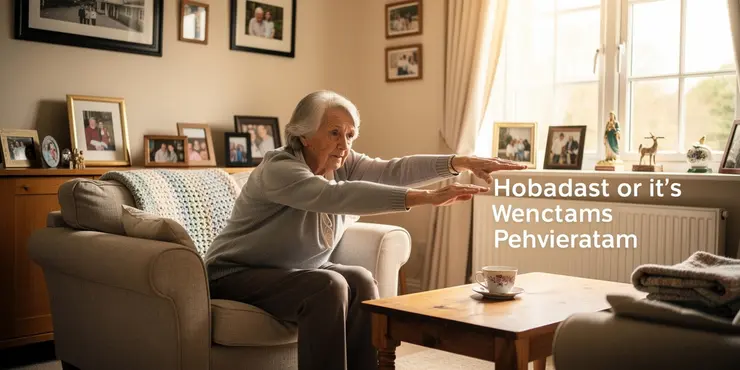
Dorothy's Story (Falls/Chest Infection)
Relevance: 59%
-
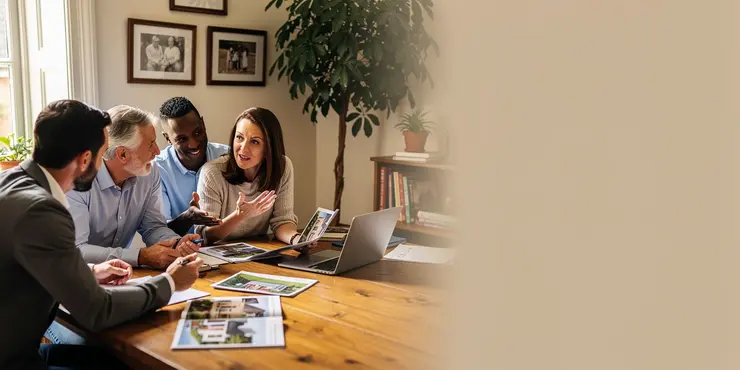
UK House Prices Fall for Third Consecutive Month
Relevance: 50%
-
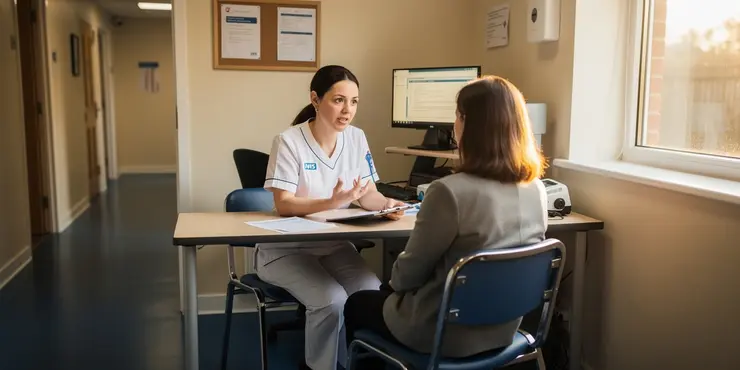
Why do interest rates rise and fall?
Relevance: 43%
-
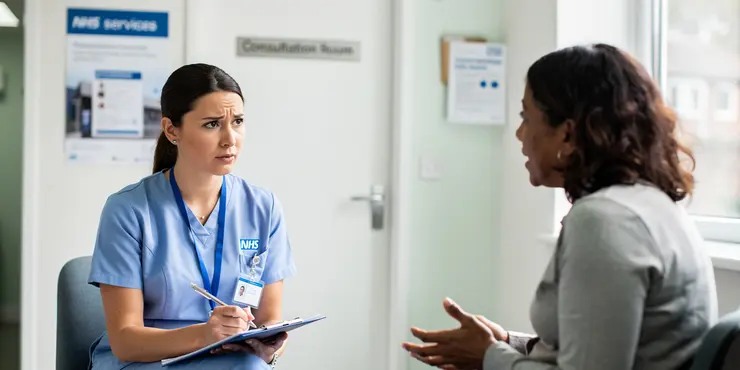
Don't Fall for These 7 Cybersecurity Scams!
Relevance: 38%
-
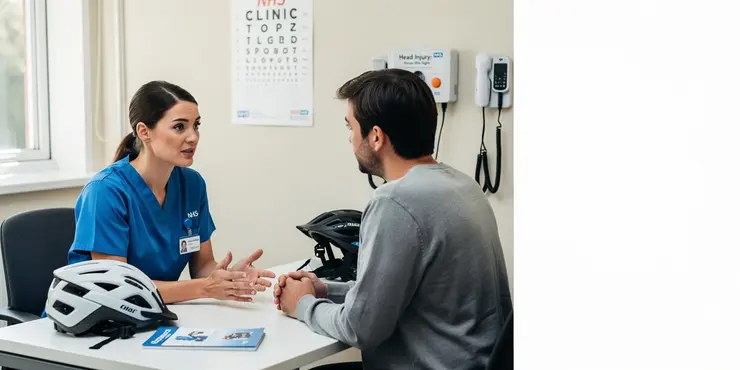
Is there any way to prevent concussions?
Relevance: 38%
-
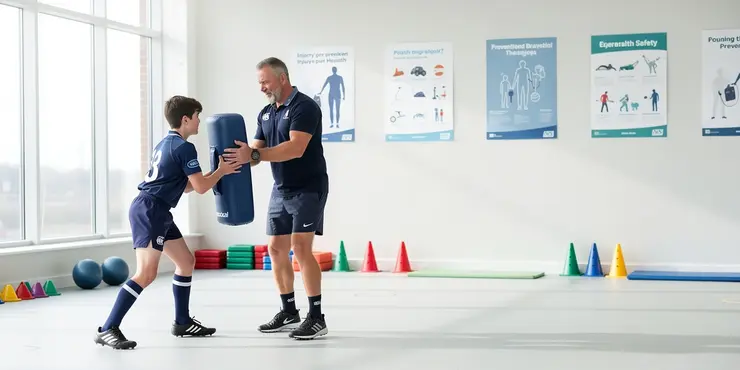
How can concussions be prevented?
Relevance: 37%
-
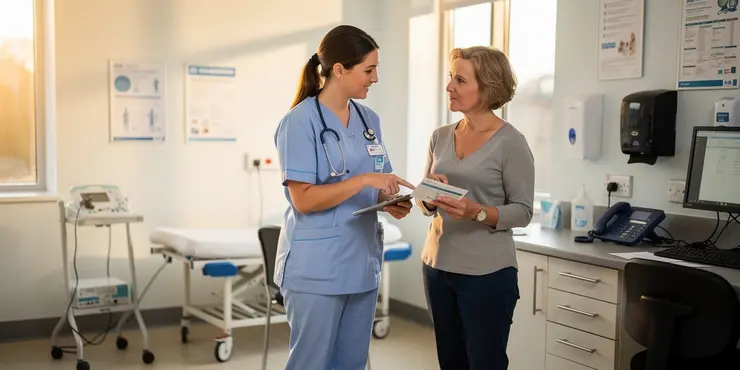
Phishing Scams EXPOSED Don't Fall Victim to These Tricks!
Relevance: 36%
-
Do mixed exercises help in preventing injuries?
Relevance: 35%
-
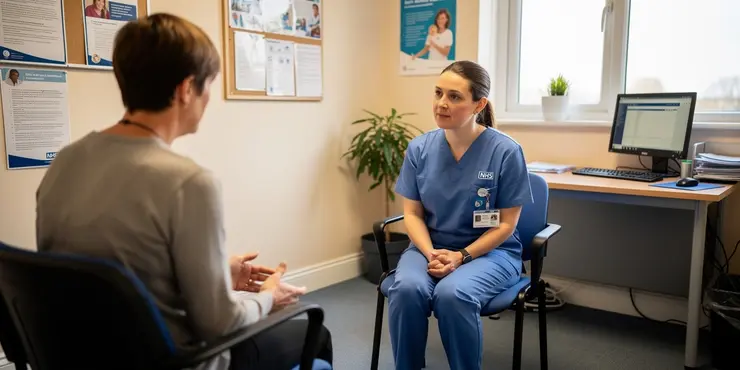
What factors influence the rise and fall of energy bills in the UK?
Relevance: 34%
-

What is the role of dental sealants in preventing tooth decay?
Relevance: 30%
-
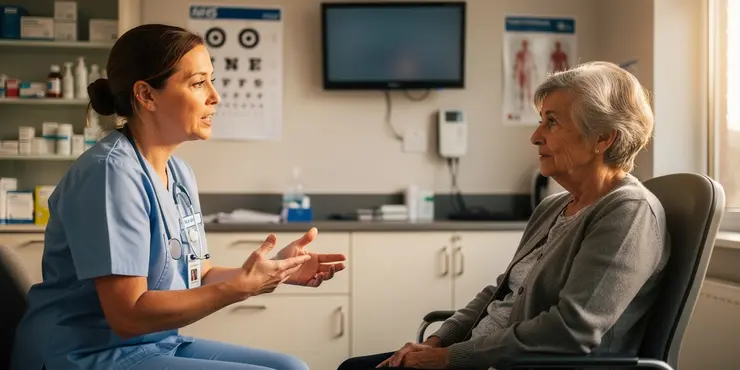
Can hypotony be prevented?
Relevance: 30%
-
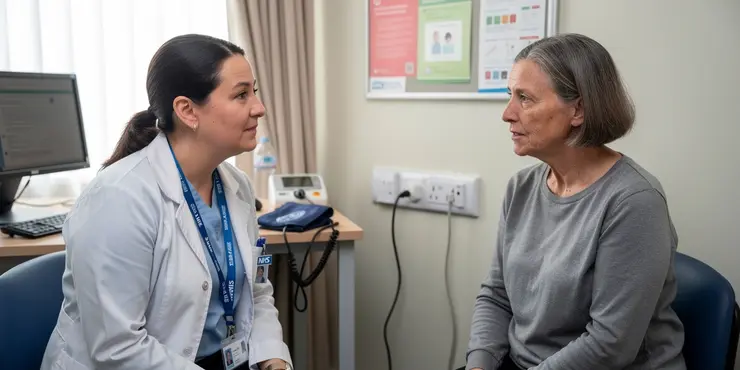
Can CFS be prevented?
Relevance: 29%
-
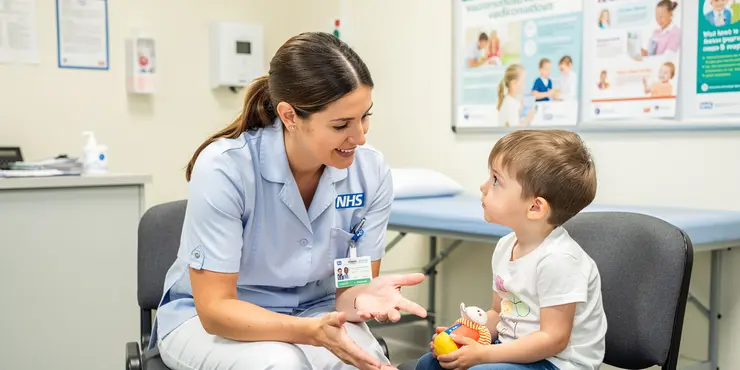
Can meningitis be prevented?
Relevance: 29%
-
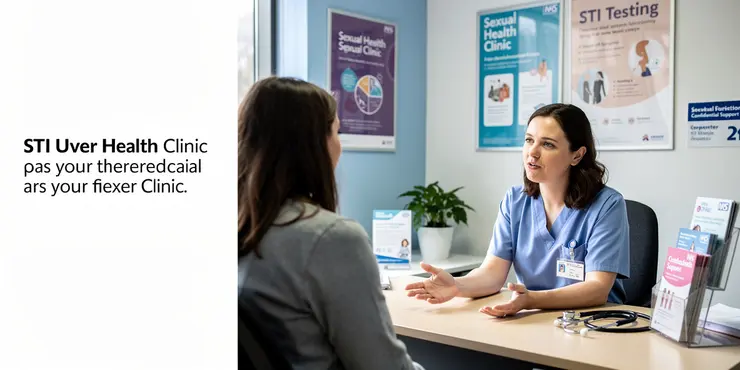
Can gonorrhoea be prevented?
Relevance: 29%
-
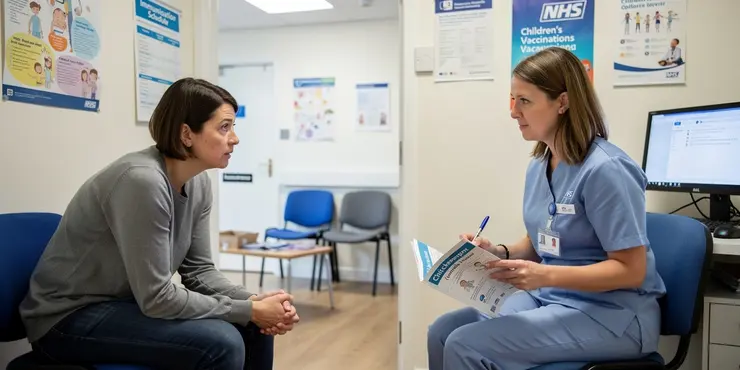
Can chickenpox be prevented?
Relevance: 29%
-

Can Rubella be prevented?
Relevance: 29%
-
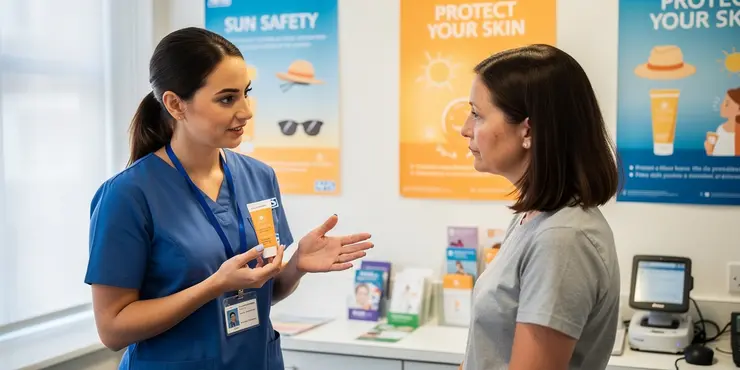
Can sunburn be prevented?
Relevance: 29%
-
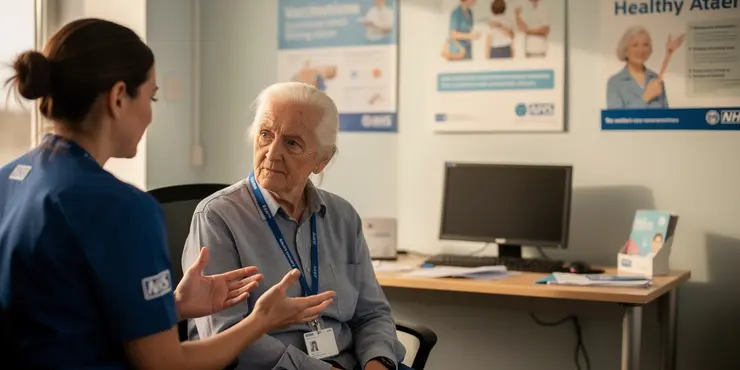
Can shingles be prevented?
Relevance: 29%
-
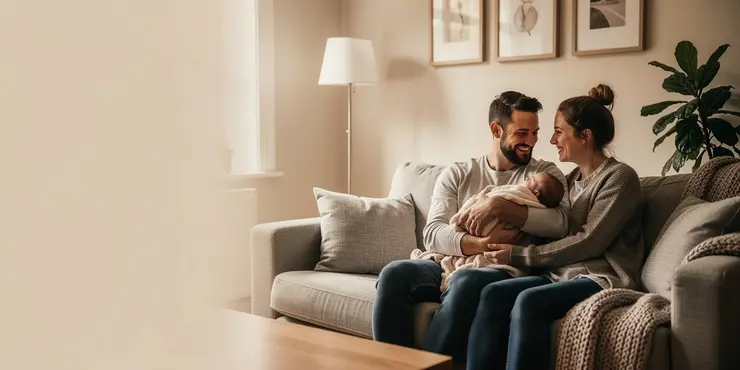
Is postnatal depression preventable?
Relevance: 29%
-
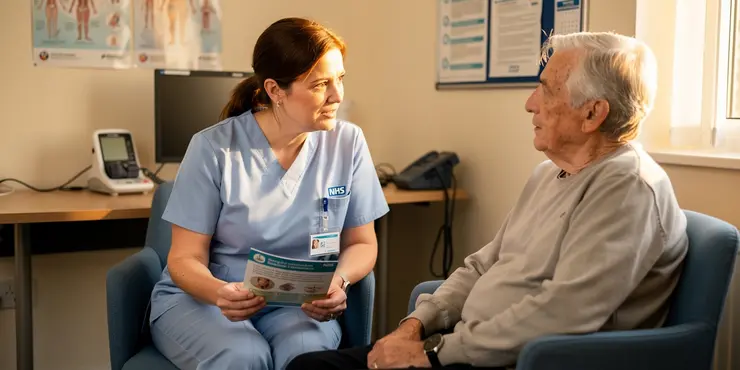
Can shingles be prevented?
Relevance: 29%
-
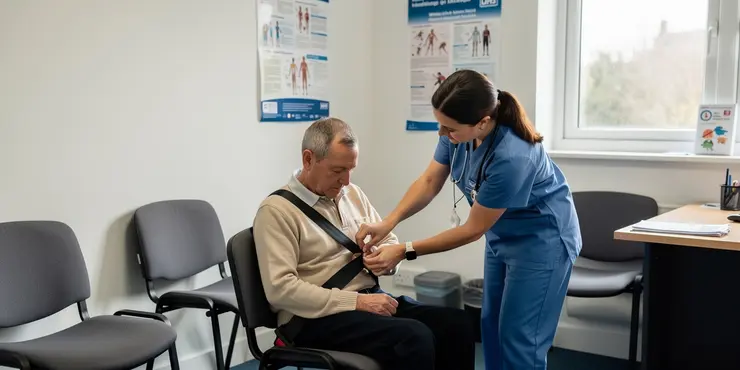
Does wearing a seatbelt prevent whiplash?
Relevance: 28%
-
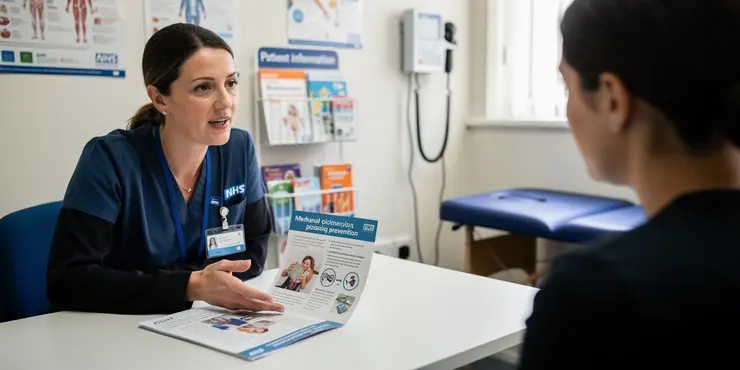
How can methanol poisoning be prevented?
Relevance: 28%
-
Are there preventative measures for eating disorders?
Relevance: 28%
-
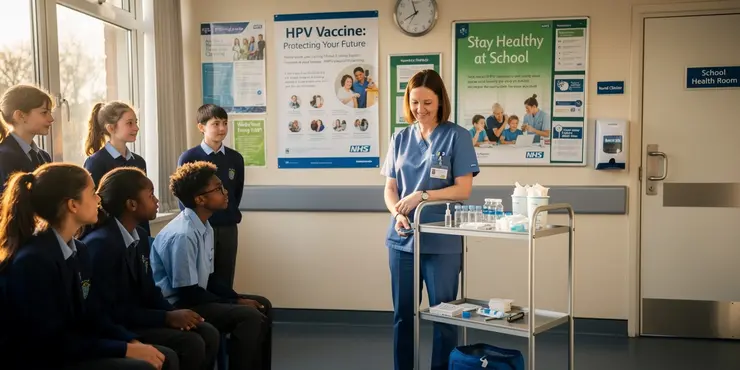
How can HPV be prevented?
Relevance: 28%
-
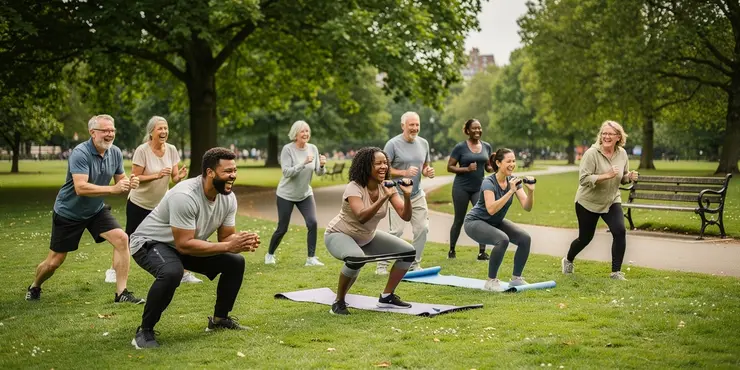
How can obesity be prevented?
Relevance: 28%
-
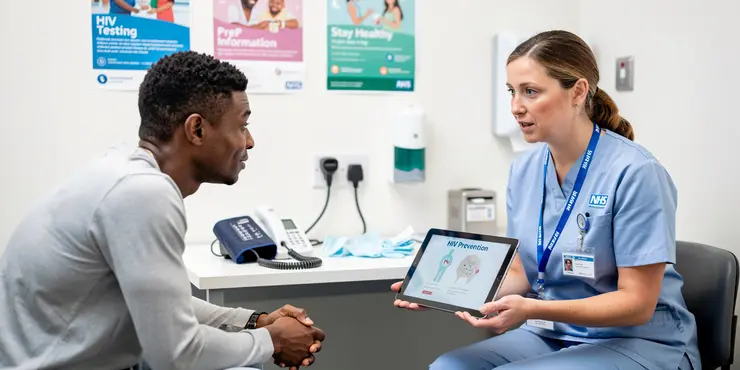
How can HIV be prevented?
Relevance: 28%
-
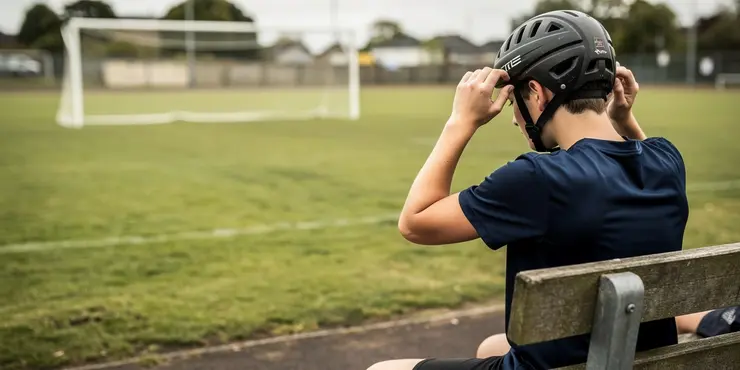
How can concussions be prevented?
Relevance: 28%
-
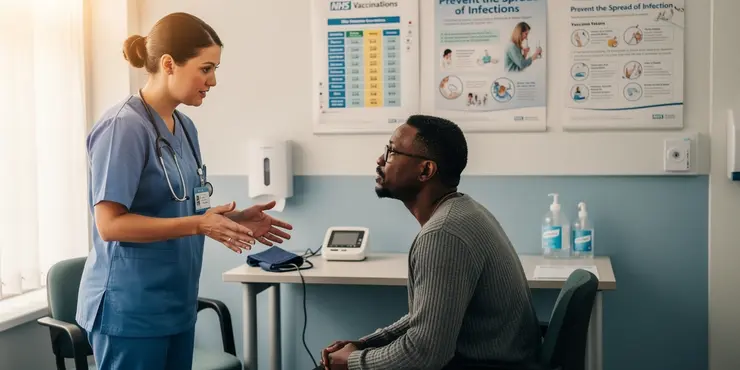
Can the bubonic plague be prevented?
Relevance: 28%
-
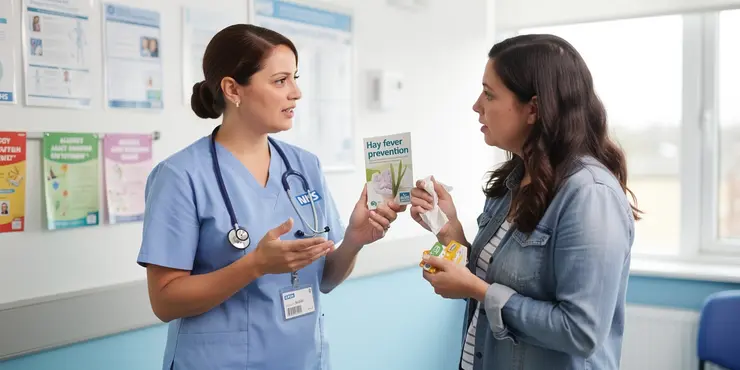
Can hay fever be prevented?
Relevance: 27%
-
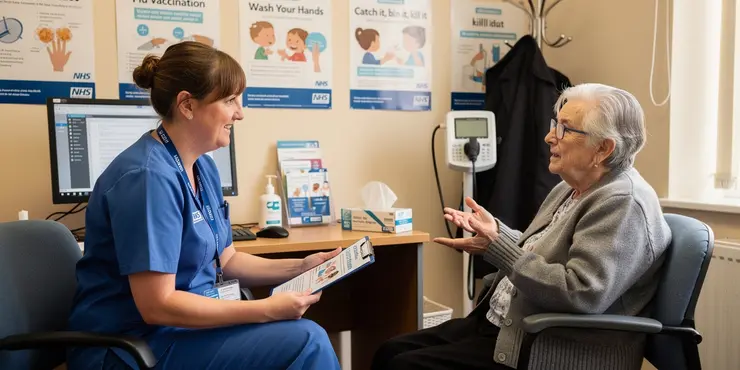
What are some preventive measures against H3N2?
Relevance: 27%
-
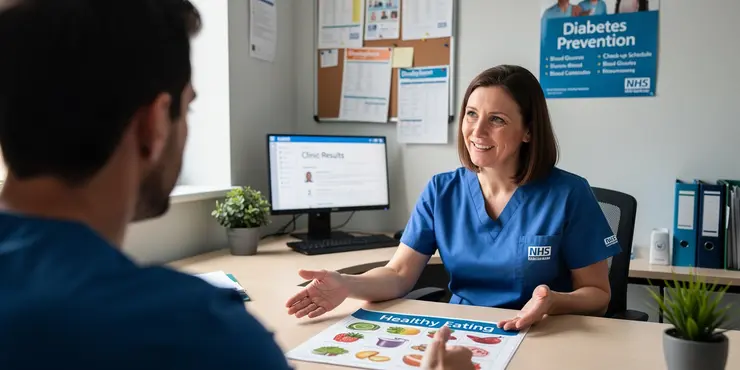
Can Type 2 Diabetes be prevented?
Relevance: 27%
-
Is it possible to prevent grooming entirely?
Relevance: 27%
-
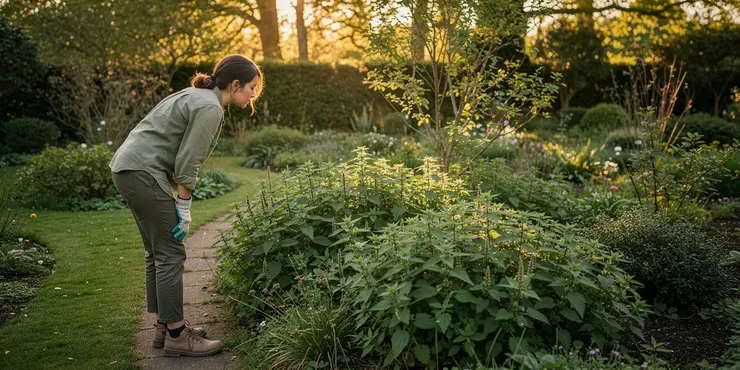
Can nettle rash be prevented?
Relevance: 27%
-
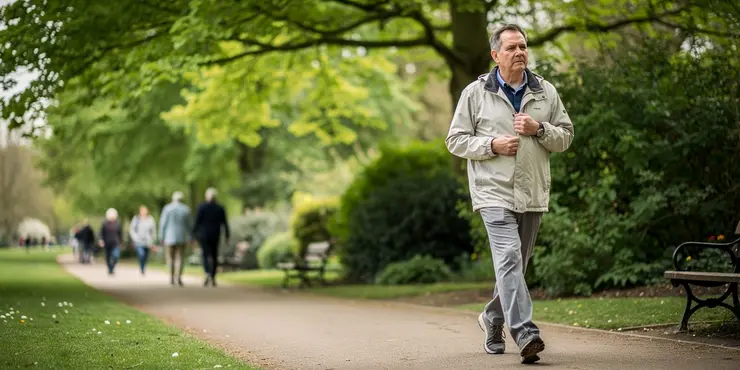
Can heart failure be prevented?
Relevance: 27%
-
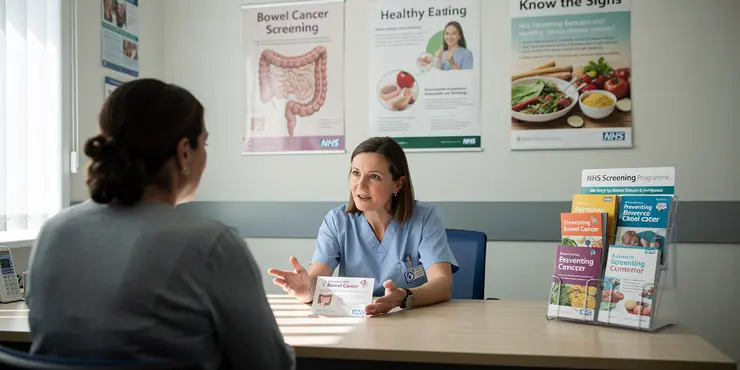
Can bowel cancer be prevented?
Relevance: 27%
Falls Prevention Podcast
Introduction to Falls Prevention
Falls are a significant concern, especially among the elderly population in the United Kingdom. The "Falls Prevention" podcast aims to educate and create awareness about the critical steps that can be taken to prevent falls and improve safety. Through engaging discussions with health professionals, caregivers, and individuals who have experienced falls, the podcast serves as a valuable resource for practical advice and preventive measures.The Importance of Falls Prevention
Each year, thousands of older adults in the UK experience falls, which can lead to serious injuries such as hip fractures, head traumas, and sometimes, even death. Falls are not just a public health issue but also have a considerable impact on the NHS and social care services. Preventing falls not only enhances the quality of life for individuals but also reduces the economic burden on healthcare systems.Identifying Risk Factors
The podcast delves into common risk factors for falls, including:- Age-related changes in balance and gait
- Medications that can affect stability
- Environmental hazards like poor lighting and clutter
- Chronic conditions such as arthritis and vision impairments
- Lack of physical activity and muscle weakness
Effective Prevention Strategies
Listeners are provided with a comprehensive range of strategies to reduce their risk of falling:- Regular physical activity to improve strength and balance, such as walking, yoga, or Tai Chi
- Reviewing medications with healthcare providers to minimize side effects
- Making home modifications like installing grab bars, improving lighting, and removing tripping hazards
- Routine eye check-ups to ensure optimal vision
- Utilizing mobility aids such as canes or walkers as needed
Real-Life Stories and Expert Insights
The podcast features real-life stories from individuals who have faced falls and successfully implemented preventive measures. Additionally, expert insights from healthcare professionals, physiotherapists, and occupational therapists provide practical advice and evidence-based recommendations. These narratives not only educate but also inspire listeners to take action in their own lives.Conclusion
"Falls Prevention" is a must-listen podcast for anyone looking to maintain their independence and enhance their safety. By addressing the risk factors, implementing effective strategies, and learning from expert insights, listeners in the United Kingdom can significantly reduce their risk of falls and lead healthier, safer lives. Whether you're an older adult, a family member, or a healthcare provider, this podcast is an invaluable guide to falls prevention.Falls Prevention Podcast
Introduction to Falls Prevention
Falls can be dangerous, especially for older people in the UK. The "Falls Prevention" podcast teaches how to stop falls and stay safe. It has talks with doctors, caregivers, and people who have fallen. They give helpful tips and ways to prevent falls.The Importance of Falls Prevention
Each year, many older people fall in the UK. These falls can cause bad injuries like broken hips or head injuries. Sometimes, falls can even lead to death. Falls are a big problem for hospitals and care services too. Stopping falls helps people live better lives and saves money for healthcare.Identifying Risk Factors
The podcast talks about why falls happen. Some common reasons are:- Getting older can make it hard to keep balance
- Some medicines can make you dizzy
- Hazards at home like dark areas and clutter
- Health problems like arthritis or bad eyesight
- Not exercising enough or having weak muscles
Effective Prevention Strategies
The podcast shares tips to stop falls:- Exercise to get stronger and keep better balance, like walking or yoga
- Check your medicines with a doctor to avoid side effects
- Make changes at home like adding grab bars, better lights, and removing clutter
- Get your eyes checked to make sure you can see well
- Use canes or walkers if you need them
Real-Life Stories and Expert Insights
You will hear stories from people who have fallen and fixed the problem. Experts like doctors and therapists give good advice and tips. These stories help people learn how to stay safe in their own lives.Conclusion
"Falls Prevention" is a great podcast for anyone who wants to stay safe and independent. By learning the reasons for falls, using good strategies, and listening to experts, people in the UK can avoid falls and live a healthier life. Whether you are an older person, a family member, or a doctor, this podcast is a helpful guide to stop falls.Frequently Asked Questions
What are the most common causes of falls among older adults?
The most common causes of falls among older adults include balance issues, weakened muscles, poor vision, medications that affect balance, and environmental hazards such as loose rugs or poor lighting.
How can I make my home safer to prevent falls?
To make your home safer, clear walkways of clutter, secure loose rugs with non-slip backing, install grab bars in the bathroom, improve lighting in all rooms, and ensure that frequently used items are easily accessible.
What exercises can help improve balance and prevent falls?
Exercises such as Tai Chi, yoga, and strength training can help improve balance and prevent falls. Always consult with a healthcare provider before starting any new exercise regimen.
How does poor vision contribute to falls?
Poor vision can contribute to falls by making it difficult to see obstacles and changes in the terrain. Regular eye exams and the use of corrective lenses can help reduce the risk.
Are there specific footwear recommendations for preventing falls?
Yes, wearing shoes with non-slip soles, good heel support, and a proper fit can help prevent falls. Avoid wearing slippers, high heels, or shoes with smooth soles.
Can medications increase the risk of falls?
Certain medications can increase the risk of falls by causing dizziness, sedation, or low blood pressure. It’s important to review all medications with your healthcare provider.
What should I do if I fall?
If you fall, try to remain calm. Check for injuries and if you're able, use furniture to support yourself as you get up. If you’re injured or can’t get up, call for help and try to keep warm until help arrives.
How can family members help prevent falls in older relatives?
Family members can help prevent falls by ensuring the home is safe, encouraging regular exercise, attending medical appointments, and discussing any concerns about medications or health issues with healthcare providers.
Is there any technology that can help prevent falls?
Yes, there are various technologies available, such as fall detection devices, medical alert systems, and home monitoring systems that can help in fall prevention and provide quick assistance if a fall occurs.
What should I look for in a fall prevention programme?
A good fall prevention programme should include assessments of physical health, home safety evaluations, exercise classes to improve strength and balance, and education on safe practices.
Are there any nutritional considerations for fall prevention?
Proper nutrition, including adequate calcium and vitamin D intake, can help maintain bone health and muscle strength, which are important for preventing falls.
How does alcohol consumption affect fall risk?
Alcohol can impair judgment, coordination, and reaction time, increasing the risk of falls. It's important to limit alcohol intake, especially for older adults.
What role do assistive devices play in fall prevention?
Assistive devices such as canes, walkers, and grab bars can greatly reduce the risk of falls by providing additional support and stability for those who need it.
Can chronic health conditions increase the risk of falls?
Yes, chronic health conditions such as arthritis, diabetes, heart disease, and Parkinson’s disease can affect balance, mobility, and overall strength, thereby increasing the risk of falls.
How often should I review my fall prevention plan?
It's a good idea to review your fall prevention plan at least once a year, or sooner if there are changes in your health, medications, or living environment.
Why do older people fall down?
Here is a list of reasons why older people might fall:
- Weak muscles: Legs might not be strong enough.
- Poor balance: Hard to stand or walk straight.
- Bad eyesight: Hard to see things clearly.
- Slippery floors: Floors might be wet or smooth.
- Clutter: Toys or stuff on the floor to trip over.
- Wrong shoes: Shoes that do not fit well.
Here are some things that can help:
- Use a cane or walker for support.
- Make sure the house has enough light.
- Keep floors clean and tidy.
- Wear shoes that fit well and have good grip.
Older people sometimes fall. This can happen because:
- They have trouble keeping their balance.
- Their muscles are not very strong.
- They can't see well.
- Some medicine can make it hard to balance.
- There are dangers around like loose rugs or not enough light.
Using a walking stick or walker can help. Make sure your home is safe by fixing loose rugs and adding more lights. If you have trouble seeing or balancing, talk to a doctor.
How can I make my home safer to stop falls?
Here are some ways to make your home safer:
- Clear Paths: Keep floors and stairs clear. Move things like wires and toys out of the way.
- Use Rugs Safely: Make sure rugs are flat and have a non-slip backing.
- Bright Lights: Use bright lights in all rooms. It helps you see better.
- Grab Bars: Put grab bars in places like the bathroom. They help with balance.
- Handrails: Put handrails on both sides of stairs for safety.
Some helpful tools:
- Non-Slip Shoes: Wear shoes with good grips inside and outside.
- Night Lights: Use night lights in halls and bathrooms to see at night.
To make your home safer:
- Keep floors clean and clear.
- Put tape under loose rugs so they don't slip.
- Put bars in the bathroom to hold on to.
- Add more lights in all rooms to see better.
- Put things you use a lot where you can reach them easily.
What exercises make you better at balancing and stop you from falling?
Exercises can help you balance better. They also help you not fall over.
Here are some easy exercises to try:
- Stand on one leg: Hold onto a chair and lift one foot. Try to stay still.
- Heel-to-toe walk: Walk in a straight line, putting one foot right in front of the other.
- Side leg lifts: Hold onto a chair and lift your leg out to the side.
- Balance on tiptoes: Stand up on your toes and hold for a few seconds.
Using a helper tool, like a chair, can keep you steady.
Have a grown-up or friend with you if you need help.
Doing exercises like Tai Chi, yoga, and lifting weights can help you stay steady and not fall over. Talk to your doctor before you start doing any new exercises.
How can bad eyesight make you fall?
When you can't see well, it's easier to trip and fall. Good vision helps you spot things on your path. If your vision is not good, you might miss seeing objects or bumps in the way. This can make you trip or lose your balance.
Here are some tips to help:
- Wear glasses if you need them.
- Keep lights on so you can see better.
- Remove things you could trip over from the floor.
Having trouble seeing can make people trip or fall. It can be hard to spot things like toys on the floor or uneven ground. Going to the eye doctor often and wearing glasses can help you stay safe.
Shoes That Help Stop Falls
What shoes can you wear to help stop trips and falls? Here are some tips:
- Wear shoes that fit well and are comfortable.
- Choose shoes with non-slip soles to stop slipping.
- Avoid wearing high heels or loose slippers.
- Look for shoes with good support and padding.
It’s a good idea to use a cane or walker if you need extra help to get around safely. Ask a family member or friend to double-check your shoes to ensure they are safe.
Yes, wearing shoes that don't slip, have good heel support, and fit well can stop you from falling. Don't wear slippers, high heels, or shoes with smooth bottoms.
Do medicines make falling down more likely?
Some medicines can make you feel dizzy, sleepy, or make your blood pressure low. This means you could fall more easily. Talk to your doctor about all the medicines you take.
What to Do if You Fall
If you fall down, don't worry! Here’s what you can do:
- Stay calm and take a deep breath.
- Look around to see if you are hurt.
- If you feel okay, try to get up slowly.
- If you are hurt or cannot get up, ask for help.
- Use a phone to call someone if you need to.
It’s good to tell someone you trust about the fall. They can help you stay safe.
Try using simple language tools to read better. For example, use picture cards or read with a friend.
If you fall, try to stay calm. Look to see if you have any injuries. If you can, use furniture to help you stand up. If you are hurt or can't stand up, call for help. Try to stay warm until help comes.
How can family members help stop older relatives from falling?
Family members can help stop falls. They can make sure the home is safe. They can cheer on regular exercises. They can go to the doctor with you. They can talk to the doctor about medicine or health problems.
Can technology help stop falls?
Yes, there are different tools that can help. These tools can tell if someone falls, call for help fast, and watch over the home to keep you safe. These include fall alarms, alert systems, and cameras.
What to Look for in a Fall Prevention Program
Are you learning to stay safe from falls? Here is what to check:
- Does the program teach easy exercises to make your legs strong?
- Will it show you how to walk safely?
- Does it help you learn to balance better?
- Is there a teacher or helper to guide you?
- Can you ask questions if you need help?
If reading is hard, you can use audio books or ask someone to read with you. Remember, practicing a little every day helps a lot!
A good plan to stop falls should have:
- Check-ups to see how healthy you are.
- Checks to make sure your home is safe.
- Exercise classes to help you get stronger and keep your balance.
- Learning about how to do things safely.
Food Tips to Help Stop Falls
What food can help you stay strong and not fall down?
Here are some easy ideas:
- Eat lots of fruits and veggies. They help your body stay healthy.
- Drink milk or eat cheese and yogurt. They make your bones strong.
- Eat fish like salmon. It helps your muscles work well.
- Drink water every day. It stops you from feeling dizzy.
Ask someone for help if you're not sure what to eat. They can help you make a plan.
Eating the right foods is important. We need to get enough calcium and vitamin D. These help keep our bones strong and muscles healthy. Strong bones and muscles can help stop us from falling.
How does drinking alcohol make falling more likely?
Drinking alcohol can make it hard to think clearly. It can also make moving around and reacting slower. This can cause you to fall. Try not to drink too much alcohol. This is very important for older people.
How do helpful tools stop people from falling?
Tools like canes, walkers, and grab bars can help stop falls. They give people extra support and keep them steady when they need it.
Can long-term health problems make you fall more?
Long-term health problems can make it easier for you to fall over. These health problems last a long time and may make you feel weak or dizzy.
Here are some health problems that can make you fall:
- Trouble with your heart
- Problems with your eyes
- Pain in your joints like knees or hips
Here are some tips to help you stay safe:
- Hold onto railings when you walk up or down stairs.
- Wear shoes that fit well and have good grip.
- Keep rooms tidy and remove things you can trip over.
Yes, having health problems like arthritis, diabetes, heart disease, and Parkinson's disease can make it hard to balance, move, and stay strong. This can make people more likely to fall.
How often should I check my fall safety plan?
It is good to check your plan to stop falls every year. Do this more often if your health changes, you take new medicine, or you move to a new home.
Useful Links
This website offers general information and is not a substitute for professional advice.
Always seek guidance from qualified professionals.
If you have any medical concerns or need urgent help, contact a healthcare professional or emergency services immediately.
Some of this content was generated with AI assistance. We’ve done our best to keep it accurate, helpful, and human-friendly.
- Ergsy carfully checks the information in the videos we provide here.
- Videos shown by Youtube after a video has completed, have NOT been reviewed by ERGSY.
- To view, click the arrow in centre of video.
- Most of the videos you find here will have subtitles and/or closed captions available.
- You may need to turn these on, and choose your preferred language.
- Go to the video you'd like to watch.
- If closed captions (CC) are available, settings will be visible on the bottom right of the video player.
- To turn on Captions, click settings .
- To turn off Captions, click settings again.
More Items From Ergsy search
-

Falls and Falls Prevention
Relevance: 100%
-

Falls Prevention Podcast
Relevance: 90%
-

Falls Prevention video for patients attending hospital
Relevance: 77%
-

Falls Prevention - strength and balance exercises
Relevance: 77%
-

Fallsafe - Put the patient first. Preventing falls in Hospital.
Relevance: 75%
-

Dorothy's Story (Falls/Chest Infection)
Relevance: 59%
-

UK House Prices Fall for Third Consecutive Month
Relevance: 50%
-

Why do interest rates rise and fall?
Relevance: 43%
-

Don't Fall for These 7 Cybersecurity Scams!
Relevance: 38%
-

Is there any way to prevent concussions?
Relevance: 38%
-

How can concussions be prevented?
Relevance: 37%
-

Phishing Scams EXPOSED Don't Fall Victim to These Tricks!
Relevance: 36%
-
Do mixed exercises help in preventing injuries?
Relevance: 35%
-

What factors influence the rise and fall of energy bills in the UK?
Relevance: 34%
-

What is the role of dental sealants in preventing tooth decay?
Relevance: 30%
-

Can hypotony be prevented?
Relevance: 30%
-

Can CFS be prevented?
Relevance: 29%
-

Can meningitis be prevented?
Relevance: 29%
-

Can gonorrhoea be prevented?
Relevance: 29%
-

Can chickenpox be prevented?
Relevance: 29%
-

Can Rubella be prevented?
Relevance: 29%
-

Can sunburn be prevented?
Relevance: 29%
-

Can shingles be prevented?
Relevance: 29%
-

Is postnatal depression preventable?
Relevance: 29%
-

Can shingles be prevented?
Relevance: 29%
-

Does wearing a seatbelt prevent whiplash?
Relevance: 28%
-

How can methanol poisoning be prevented?
Relevance: 28%
-
Are there preventative measures for eating disorders?
Relevance: 28%
-

How can HPV be prevented?
Relevance: 28%
-

How can obesity be prevented?
Relevance: 28%
-

How can HIV be prevented?
Relevance: 28%
-

How can concussions be prevented?
Relevance: 28%
-

Can the bubonic plague be prevented?
Relevance: 28%
-

Can hay fever be prevented?
Relevance: 27%
-

What are some preventive measures against H3N2?
Relevance: 27%
-

Can Type 2 Diabetes be prevented?
Relevance: 27%
-
Is it possible to prevent grooming entirely?
Relevance: 27%
-

Can nettle rash be prevented?
Relevance: 27%
-

Can heart failure be prevented?
Relevance: 27%
-

Can bowel cancer be prevented?
Relevance: 27%


